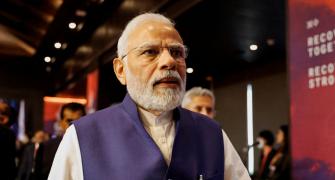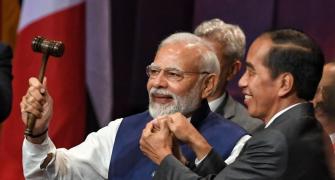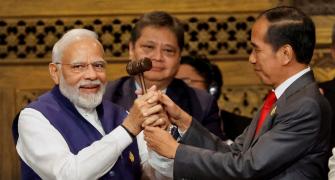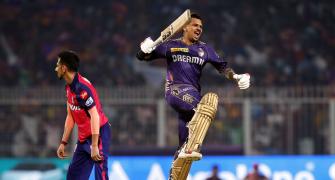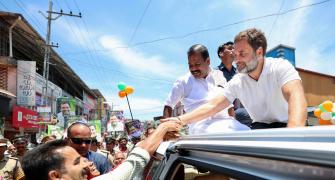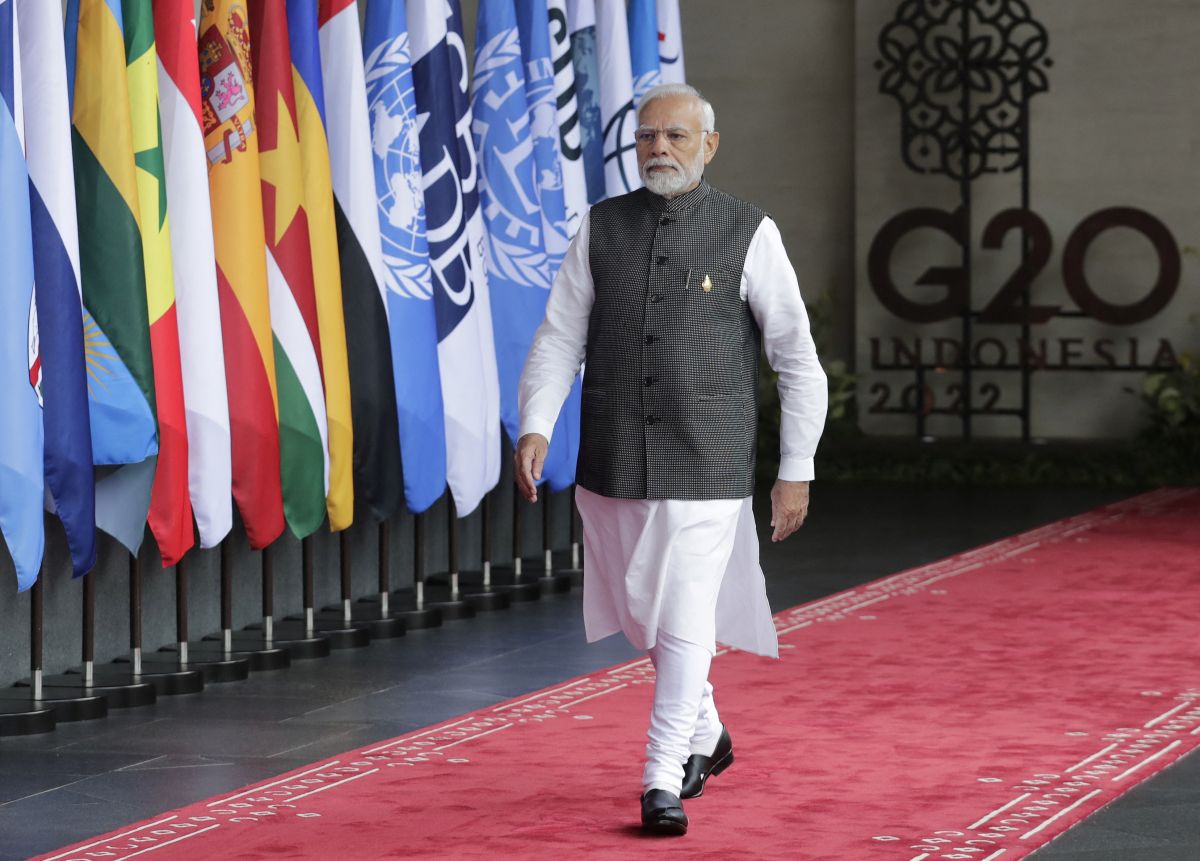Will G20 showcase an India that is inclusive, culturally rich, diverse and tolerant, asks Ramesh Menon.
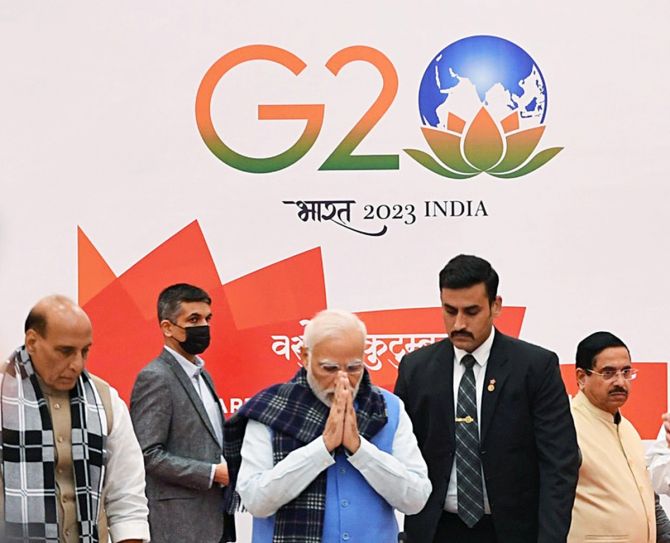
If a poll is conducted on what the G20 presidentship means for India, respondents will likely flag how it showcased Prime Minister Narendra Modi as a leader on the global table.
They are unlikely to remember anything else as millions of G20 posters and ads all over India has pictures of Modi on them. It talks little about how India is going to helm it.
G20 is one of the most significant opportunities for Modi to show the world that India can emerge as a global player to deal with contentious issues like the Ukraine war, climate change, and economic crisis if we work together.
But will he? Will he instead use it just to enhance his image as a global leader before the 2024 elections?
G20 is a group of 20 major developed and developing countries. Set up in 1999, it aimed to exploit the power of collective collaboration not only among themselves but with emerging economies.
The developed countries in the group include the United States, United Kingdom, European Union, Germany, Australia, France, Canada, Japan, Italy, and South Korea.
The developing countries include China, Saudi Arabia, India, South Africa, Argentina, Turkey, Indonesia, Mexico, Brazil, and Russia.
This grouping is certainly powerful and any collective action will go a long way to solve vexed problems and global concerns.
G20 today represents the current global economic order more than the United Nations.
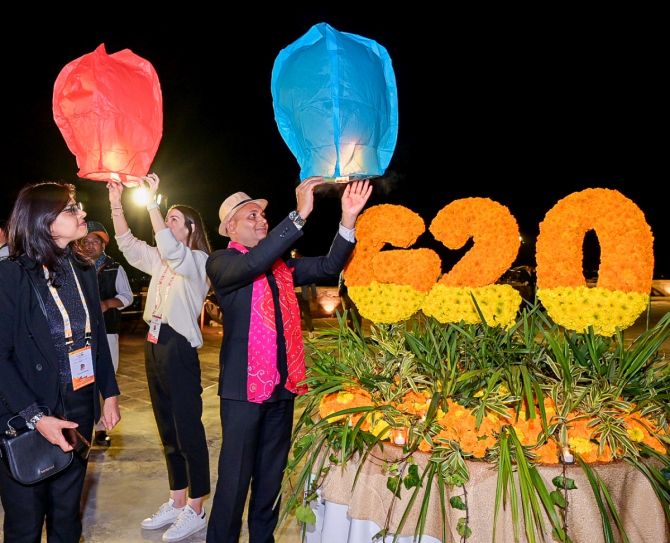
This is undoubtedly a challenging time for any country. Almost all the economies in the world were gutted by COVID-19, resulting in substantial job losses, broken business enterprises and after-effects on health.
As if this was not enough to paralyse the world, the Ukraine war triggered off dangerous geopolitical tensions that consequently led to led to an energy crisis along with rising prices of food and fuel.
Compounding the crisis was the threat of a global recession that is threatening to explode sometime in 2023. It will that paralyse many nations, including India.
Globally, over 200 million have lost jobs.
Over 100 million are experiencing extreme poverty.
The Sustainable Goals set by the United Nations, which seemed achievable, has become difficult for many countries, including India.
More than 70 countries, including Sri Lanka and Pakistan, are battling a severe debt crisis.
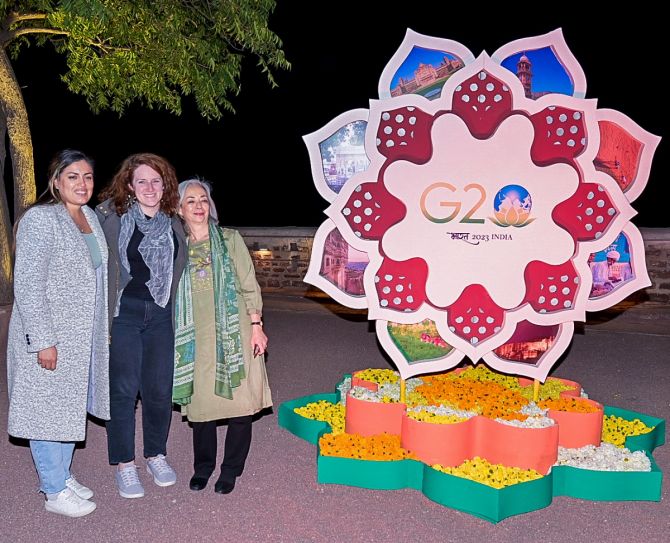
At this juncture, India has got an opportunity to take the lead for a year in driving a consensus on critical global issues, push for collective action, and also emerge as the champion of the developing world's agenda.
Can it now show that it has the potential to become a truly global leader with workable solutions or will Vishwaguru be just an ironic term that will haunt the current political dispensation?
Navigating a world in a churn takes work.
One of the significant issues facing G20 would be the Ukraine War, which has triggered a global sense of anger and helplessness.
At the Bali G20 Summit last year, India diplomatically quoted the United Nations General Assembly resolution on the war, not wanting to take a stand.
As chair of the G20, India can work towards a peace settlement. Russian President Vladimir Putin would be more agreeable to having India as a mediator than any Western power.
India can also take a more nuanced view than China or the US.
Another crying issue is the debt trap that countries find themselves caught in.
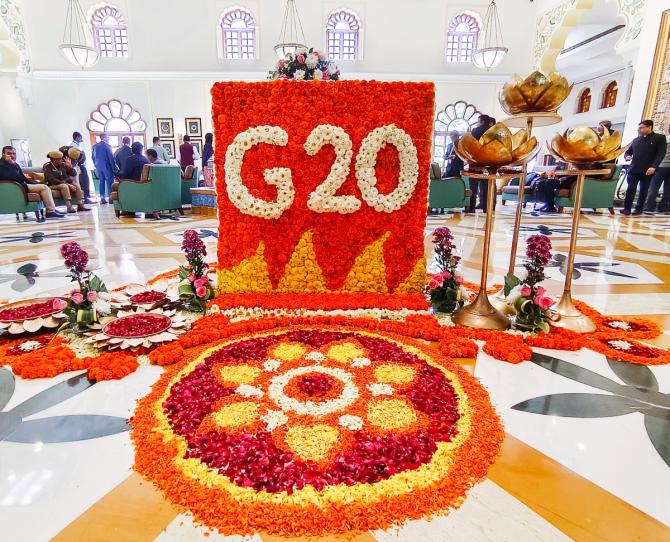
Over 80 low and middle-income group nations like Sri Lanka and Pakistan face a serious debt crisis, according to the International Monetary Fund and the World Bank.
India should convince the G20 to restructure lending and borrowing norms as these countries could greatly benefit.
G20 can also come out with a response to tackling the reality of a global recession.
Climate change continues to play havoc in the world.
The last Conference of Parties 27 at Sharm-El-Sheikh mooted the need to set up a loss and damage fund to aid nations bearing the blunt of climate change. But, modalities have not been worked out and G20 could initiate it.
Another opportunity is for India to push G20 countries to start cultivating millet which requires less water and is not only highly nutritious but can grow anywhere.
This is crucial as there is a water shortage, and wheat supplies have dwindled, as both Ukraine and Russia are major exporters.
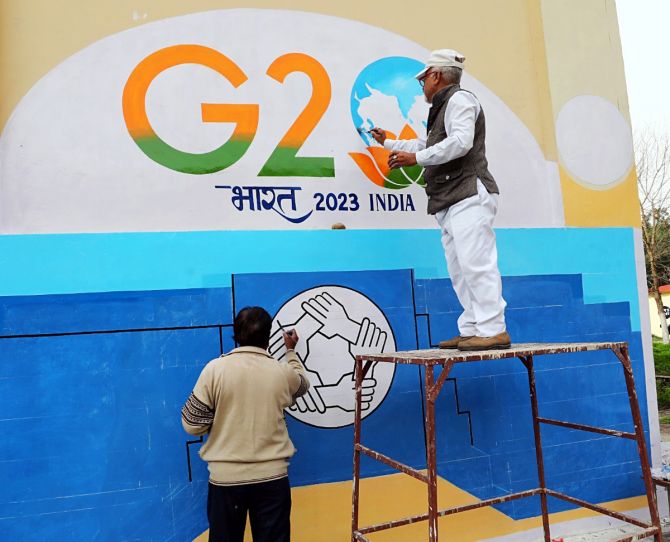
Half the world's population does not have a digital identity.
When digital access becomes easily accessible and inclusive, it can trigger off the socio-economic transformation.
Unlike most of the world, India has achieved much in this area and can offer its expertise to other nations.
The pandemic exposed the vulnerability of global chains dependent on China, making the world realise that it has to change.
India could make a case for itself to be an alternative global supply chain.
On its G20 plate, India has identified six shared priorities like public digital goods, digital infrastructure, climate action, climate finance, clean and sustainable energy transition, progress on sustainable development goals, women-led development, and multilateral reforms.
That is a lot to do.
Even cynics feel that something will come out of the numerous G20 meetings in various states of India that will figure out solutions to deal with problems related to energy, climate, corruption, agriculture, digital economy, finance, technology, innovation, trade, and finance.
Earlier, G20 was criticised for its ineffectiveness, as getting all countries with different geopolitical interests under a common umbrella was a task.
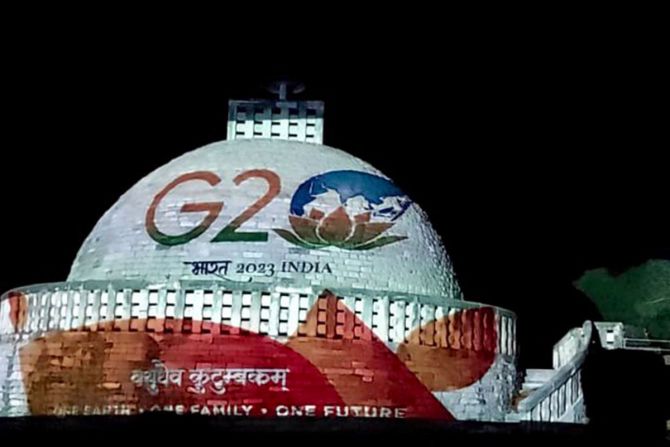
It is now up to India to change the narrative as leaders of 19 other powerful countries meet in New Delhi in September.
It must not allow G20 to become toothless and colourless as the Non-Aligned Movement.
The intentions are good, but they have to be made to work. Empty slogans will not do.
The theme of 'One Earth, One Family, One Future' enshrined in the ancient Sanskrit ethos as Vasudaiva Kutumbakam, has been mouthed by many BJP leaders.
It sounds great.
But ironically, in India, divisive politics, attacks on minorities and communal campaigns are alive and kicking.
Democratic institutions are under attack.
Governors in Opposition ruled states are making it difficult for elected governments to function.
Human right violations are worrying.
Those opposed to the government are having a tough time.
The media is under attack if they are unpalatable to the government.
If G20 leaders have to respect India, we must have our house in order first.
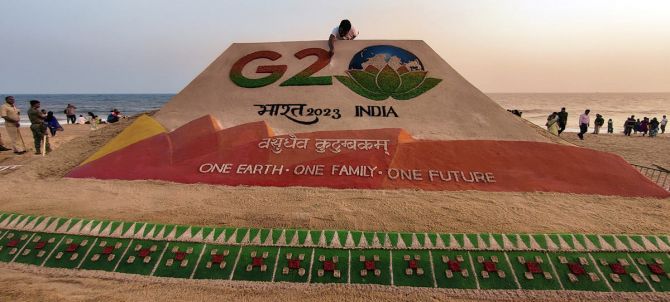
It is a rare chance for India to showcase its diversity and political culture that has supported democracy for over seven decades as it hosts over 200 meetings in 56 cities where there would be delegates from different countries.
There is no country as rich in diversity as India. But to showcase that globally, our political leaders need to reform themselves and sincerely do things that will show that this country is about different religions that harmoniously co-exist.
If we can achieve that, it will be a golden moment that will be a trajectory to India emerging as one of the most influential democratic nations in the world.
Ramesh Menon, award-winning journalist, educator, documentary film-maker and corporate trainer, is the author of Modi Demystified: The Making Of A Prime Minister.
Feature Presentation: Rajesh Alva/Rediff.com

